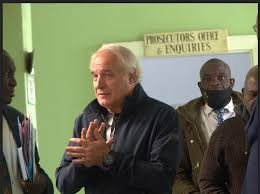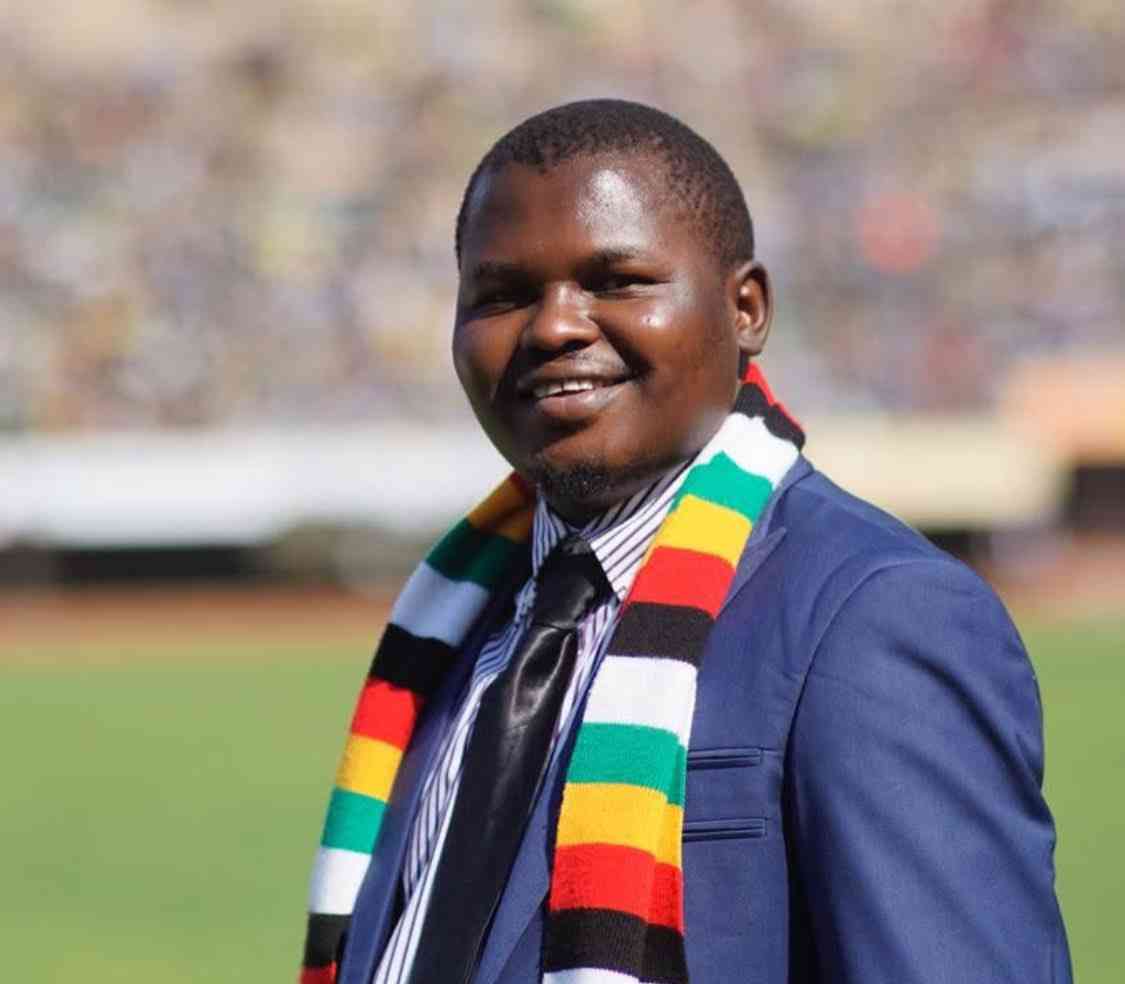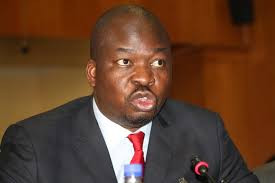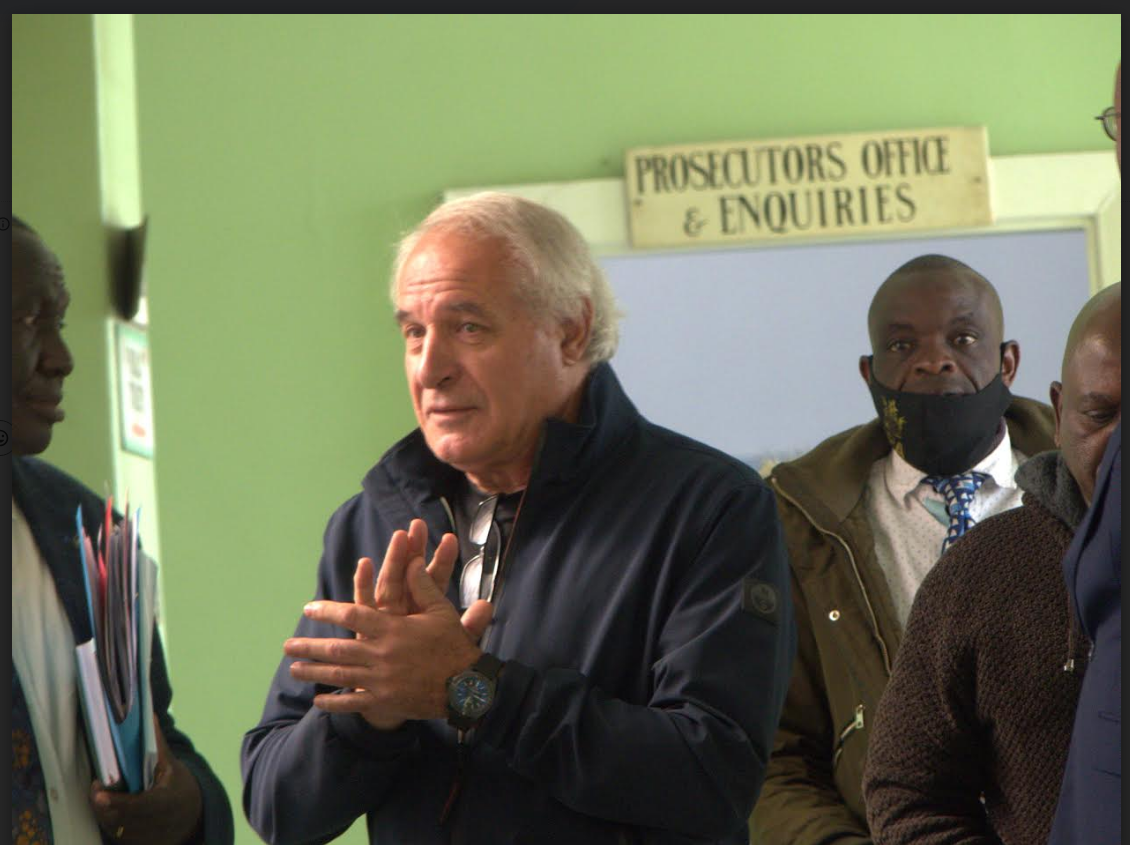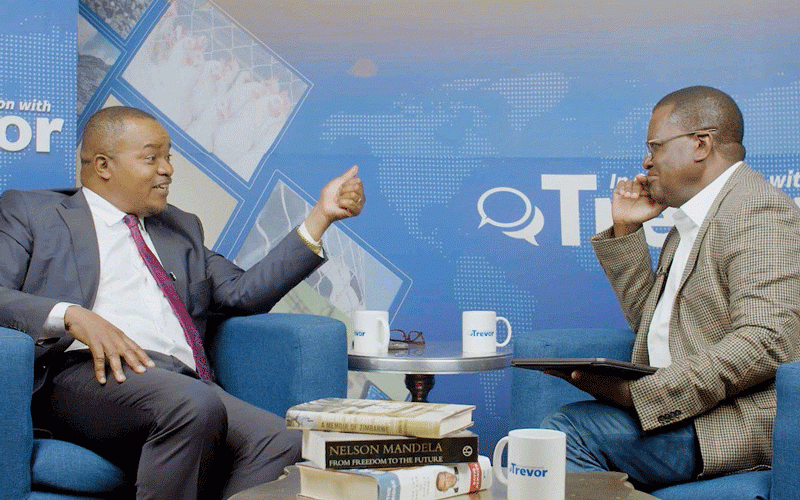
Evangelical Fellowship of Zimbabwe president Bishop Never Muparutsa says Africans must aspire to be better than the West by charting their own course when it comes to development.
Muparutsa (NM), who is also the presiding bishop of the Pentecostal Assemblies of Zimbabwe, told Alpha Media Holdings chairman Trevor Ncube (TN) on the platform In Conversation with Trevor that the West cannot set an example for Africans.
Below are excerpts from the interview.
TN: Bishop Never Muparutsa, I am so delighted that you agreed to come and sit in front of me and we have a conversation.
NM: Yes sir. How are you?
TN: I am very well, good to have you.
NM: Thank you. Pleased to be here.
TN: We were together at a meeting.
- Bruce’s Beach returned to family nearly a century after seizure
- Kariba artistes plead for support
- Econet says it experienced ‘rush hour data outage’
- Zanu PF moves to fast-track Patriotic Bill
Keep Reading
Just share with us what that meeting was about before I get into want I want to ask you.
NM: The meeting was if I remember AFReG.
TN: Yes.
NM: Africa On Religion and Government Forum, that we were having a breakfast meeting that we bring together politicians, business people, church leaders, and key people in society to come together to share ideas.
Basically to make Africa a prime continent. That is basically what it is all about.
The whole idea is to begin to look at how we can develop the next generation of leaders that fear God, and care for the continent, and care for others.
TN: You know, before I go on to actually talk, as you talk you remind me of what the professor from Ghana said, which has remained with me, and he said if I remember well, correct me if I am wrong, he says we do not aspire to be like the West.
NM: Yes.
TN: We aspire to be better than the West. So the West cannot set an example for us.
NM: True.
TN: We ought to have our own vision. Did you want to unpack that a little bit?
NM: Yes. That was Professor Delanyo Adadevoh, the founding leader of AFReG.
So basically, what we are looking at is the West definitely is not what we aspire to be.
Of course, we can pick a lesson from them, but they are not our ultimate aspirations.
We believe that we have all what it takes as Africa, as Zimbabwe, to do what we need to do.
If we dig deep in who we are, because basically all that we see happening over there, let us call it over there in the west, and everywhere else, most of the things behind it are Africans.
In everything that you see and every sector, what the westerners were good at doing is basically manage our skills.
It is us employing the skills and they manage that, but what we get to see is who is managing but we do not see who is skilled.
TN: Who is doing it?
NM: Who is doing it, and you can do it without a skill?
TN: Absolutely.
NM: And it is within us.
TN: What do we aspire to be as Africans?
- Do you have a sense?
- I mean that was a beautiful meeting that we had, with Douglas Mboweni from Econet, with a lot of you know prominent people praying and sharing.
- What are we aspiring to become?
NM: So, what we are aspiring to become, first of all, is to create an Africa that God wants, because God is our ultimate aspiration.
What is it that God intends for the world to be?
It is not what the West has become.
In fact, the West has lost it.
It is that which God wants us to be, a human being is the ultimate, the prime of God's creation.
So, what we are looking at is let us go back to the origins that which God intends us to be.
That is what we want Africa to be, and the rest of the world will follow suit.
You can see what the West is trying to do as well in the process, is to make us conform to the current state of affairs that we see.
But when you look at what the Bible is saying we must become; the honour, the respect and the dignity of a human being is what Africa should be.
Hopefully our leaders, whether it is in the political realm, whether it is in business, whether it is in church and everywhere else, we then get to come to understand the dignity of a human being, which is done obviously when we begin to develop.
Develop everything that makes a human being what God intends them to be, which is our biggest problem right now in Africa.
The desire to develop in every other area of life.
TN: And our manual, from the Creator is the Bible.
NM: Yes sir. That is it.
TN: And so how can we live our lives completely ignoring the manual from He who created us?
NM: That is the tragedy of where we are.
That is the biggest challenge we are having, when people are now more artificial intelligence-oriented, than they are, to go back to the manual of the Bible, well I mean the manual of life which is the Bible.
You look at Genesis Chapter 2 I think, around verse number 5.
The Bible speaks about why God did not allow the rain to come on earth so that the rains cause the earth to produce without a man.
God did not allow that to happen before he put a man because what God wanted was the man to manage His creation, and He had put everything in us before we were corrupted by the devil; as we go we are keeping on corrupting ourselves by what we call knowledge.
The Bible is very clear, knowledge shall abound in the last days.
It is our mismanagement of knowledge, knowledge that is not turned into wisdom that is taking us astray. Now you can see with what is happening...
TN: We will get to that beautiful space.
But I must go to this, the question that I have been wanting to ask you: For the benefit of the viewers out there...
NM: Yes.
TN: When we met at this meeting you stood up and you said you had met your father?
NM: Yes.
TN: For the first time?
NM: Yes.
TN: That week. Which is about two months ago?
- And you met your father for the first time and he is 96.
- Talk to us about that experience of discovering your father and he is 96?
NM: Okay. It is a very interesting story. Let me start by saying, I was born in Guruve. Okay.
I left Guruve with my mom under the circumstances then.
Then grew up in Manicaland, in Mutare, in Dora Estate.
TN: Are you the only child?
NM: No.
TN: Okay.
NM: Now when I left Guruve I was about two or three-years-old.
My sister then was six months in my mother’s womb.
My mother then had other children in a different marriage later on.
So, the circumstances were such, so hard that my mom had to go back home and left my father there.
And my father never dared follow-up.
I was born in Guruve, and we were in MaKorekore.
So, born there, raised as a Manyika person up to about 21-years-old.
In my professional years raised as a Zezuru.
You can understand the concoction that I am.
So all along my mother was so hurt that she did not even want to hear even the question about where I came from?
Who am I? So I grew up, I was raised up by my grandmother.
A very tough woman. Her nickname was California.
TN: Why?
NM: She was very tough.
She was such a woman who could make men run.
She used to be a manager at a farm, she used to ride horses, so she developed us very tough.
To know how to look after ourselves, because the circumstances were such that we grew up with my sekuru’s, my uncles on my mother's side.
My maternal uncles, who you know culturally how they look at muzukuru, you know.
So, they looked at us so funny, but my grandmother was very tough and one thing she taught me was the only thing that I can give you is education, fight hard to be educated.
The rest they will take away from you, but your education you will die with it.
TN: So true.
NM: And yet my grandmother was not educated, but that is one thing she understood.
Therefore, okay run the script faster. So I grew up without knowing my dad until now.
TN: Never knowing your dad?
NM: I did not even know what he looked like until August last year, that is when a brother of mine who when I was a baby knew my dad because where my mother got married was her auntie, her father's sister.
So my mother's aunt, who is in the same area with my dad, who is long passed on, my brother remembered that.
During Covid something just happened, he just said no I was with your dad when I went back home during Covid-19.
Remember during Covid we all went back either to the rural, to find space or other things.
So he says young brother, your dad is alive. I said what are you talking about?
But the way I was brought up I did not care because I then got into a space where God became my father, so I did not care.
TN: Wow.
NM: Then my wife said no, it is important you get to know the man.
My wife pushed me to say let us do something about it.
She pressed my brother to say let us go and see the old man and we drove to Guruve.
What a day it was.
TN: What a day. Talk to us about that day?
NM: So the very first time my brother said I will direct you there. We went to Guruve...
TN: How old were you last year when you met your dad?
NM: Man... 54 years old
TN: Wow.
NM: I was just turning 54 years old, and I had never seen him.
TN: There you are you seeing this man?
NM: I see the old man.
He sees me, and now I have got my sister who he never saw because (mum) was pregnant when we left.
When he saw my sister, he remembered.
When I saw my relatives, I looked like all of them, I did not need Tinashe (Mugabe).
We looked all alike.
So, my father started narrating, telling me about all, to prove he talked about my mother, my aunties, my uncles and everybody else back where I was raised.
Where is this one? Where is this one? I was shocked, you know all these people and you dare not look out for me?
TN: How does he answer that question?
NM: He answered the question and blamed it on my mother.
TN: Okay.
NM: He blamed it on my mother.
He gave me a story about when my mom was suffering there, she devised the story to run away together with their auntie.
They agreed to say my grandfather (paternal) had died because she was suffering, she needed just a way to be let off.
So they wrote a letter, which purportedly they said came from Mutare, so they gave it to my dad.
TN: Was this to escape your dad? To run away from your father?
NM: Yes. They wanted her to escape from my father because the story they tell me, my mother told me, my dad did not substantiate it, he did not delve into that.
But this story is very interesting.
So her auntie and her devised this and gave him the letter.
When he heard that his father-in-law had died he raised money and gave it to them to go.
That was the end of it. My mother said we will never go back.
TN: And he never came to look for her?
NM: He never came to look for my mother, because he had not paid lobola anyway.
So what he had done is when he was in Mutare, he had picked my mom, he used to visit my grandmother for beer drinking.
That is when he saw my mom who was serving them, because he was friends to my uncle (maternal), who was a brother to my mother.
- “In Conversation With Trevor” is a weekly show broadcast on YouTube.com//InConversationWithTrevor. The conversations are broadcast to you by Heart and Soul Broadcasting Services. The conversations are sponsored by WestProp Holdings.

